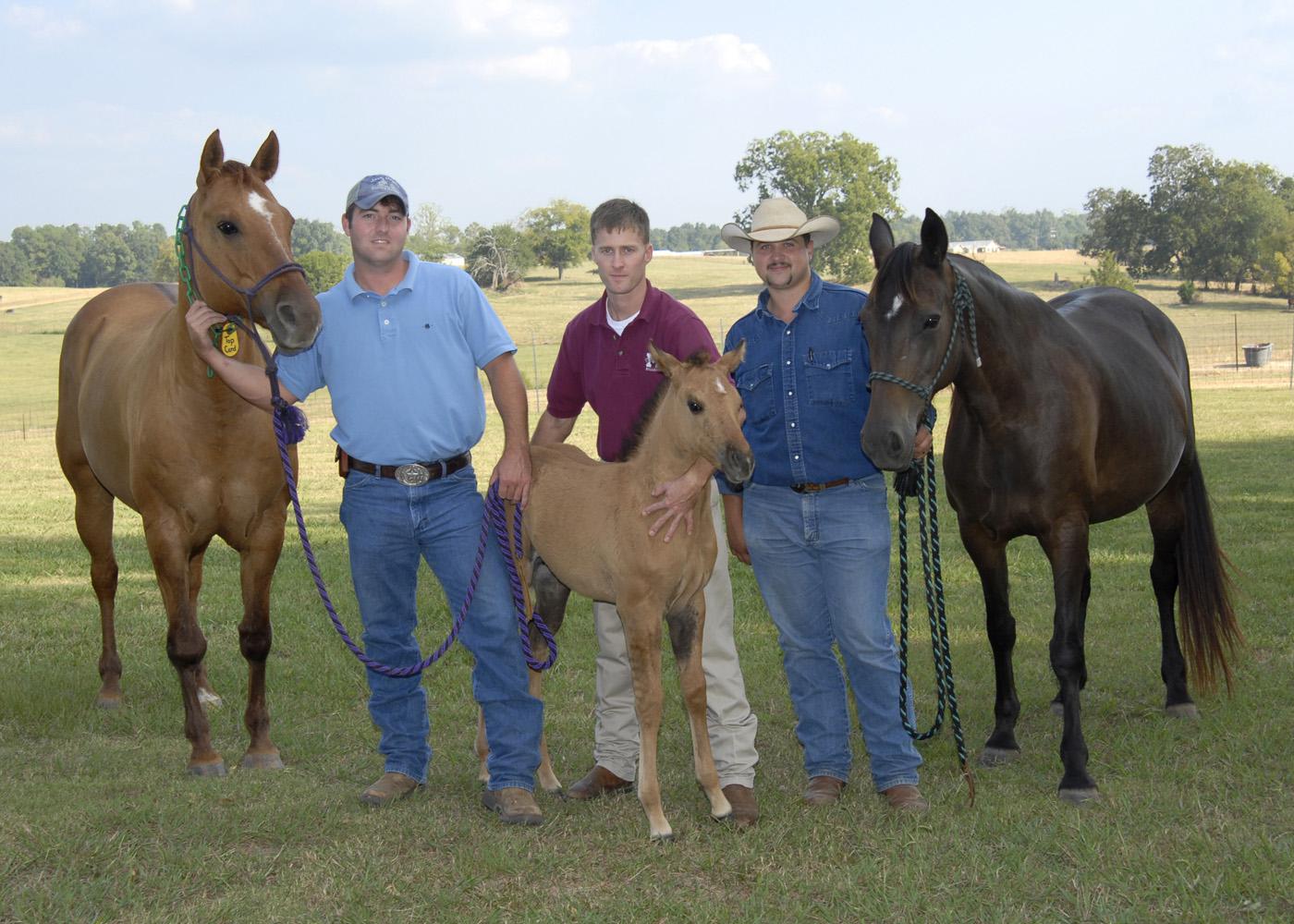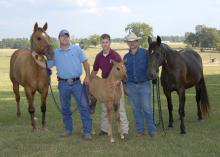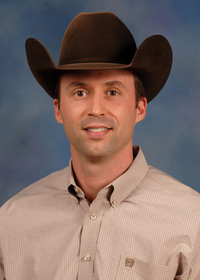Information Possibly Outdated
The information presented on this page was originally released on November 29, 2007. It may not be outdated, but please search our site for more current information. If you plan to quote or reference this information in a publication, please check with the Extension specialist or author before proceeding.
Horse unit adds frozen embryo transfer abilities
MISSISSIPPI STATE -- Her future registered name may be different, but around the horse unit at Mississippi State University, everyone calls her Popsicle.
Born in September, Popsicle is the result of MSU's first successful frozen embryo transfer in horses. University veterinarians have performed embryo transfers in recent years, but the freezing process takes the complicated procedure one step further.
Dr. Kevin Walters, a veterinary resident in animal reproduction, performed the transfer at the Morgan Freeman Equine Reproduction Research Unit, located at MSU's College of Veterinary Medicine.
“Timing is extremely important in successful transfers in horses. Freezing allows time to store the embryos until the ideal time for both mares involved,” Walters said.
Breed organizations, such as the American Quarter Horse Association, have recently changed rules to enable owners to register multiple foals from a single mare within one year.
“This procedure has been practiced commercially on a limited basis in the last year or two, but the rule changes will open the door for more in the future,” Walters said. “MSU's success in frozen embryo transfer signals a new opportunity for Mississippi horse owners looking for the best reproduction method for their horse's situation.”
Dr. David Christiansen, CVM assistant professor of animal reproduction, said national success rates remain relatively low at about 20 percent in frozen embryo transfer attempts, compared to 60 percent success in regular embryo transfers.
“Successful transfer of a frozen embryo requires a pretty precise technique,” Christiansen said. “The embryo has to be handled very carefully in the freezing and thawing processes in addition to the other variables that can impact a successful pregnancy.”
Popsicle is the daughter of Minister Slew, who is the grandson of Triple Crown-winner Seattle Slew, and Top Card, a champion cutting horse who retired due to a knee injury.
Peter Ryan, associate professor of animal and dairy sciences, said owners may decide to transfer embryos for several reasons. Some of these include competition schedules or health issues.
“Top Card is a perfect example of a mare that can benefit from the embryo transfer technology,” Ryan said. “She is an excellent horse, but because of her knee injury, she probably could not support the extra weight of carrying a foal.”
Ryan credits the changes in registration requirements to allow more than one foal per year from a high-quality dam for increasing interest in embryo transfer.
“Owners of winning mares and/or stallions can remain on the performing circuit without taking time out for reproduction,” he said. “They can be bred by artificial insemination and then have the embryos transferred to recipient mares to finish out the pregnancy. The freezing option enables a broader window of opportunity to save embryos for implanting later.”
Ryan, who has a joint appointment with MSU's College of Veterinary Medicine, said the university's reproduction program helps the state's horse industry and students as well. While horses are involved in various research projects, students take part and witness all levels of equine reproduction.
“Students in the DVM program get to see the reproductive work firsthand. Senior veterinary students are actively involved in the hands-on activities of the reproductive program,” he said. “All students benefit from the large number of mares in our research herd because it provides many opportunities to take part and see the possible outcomes.”
Undergraduate students in animal and dairy sciences also are involved through a class referred to as “Foal Watch.” ADS students learn about late-term pregnancies and potential complications by taking turns in the dusk-to-dawn class and assisting with newborn foals.
Your Extension Experts
Related News
Pages
Related Publications
Pages
- « first
- ‹ previous
- 1
- 2
- 3
- 4




